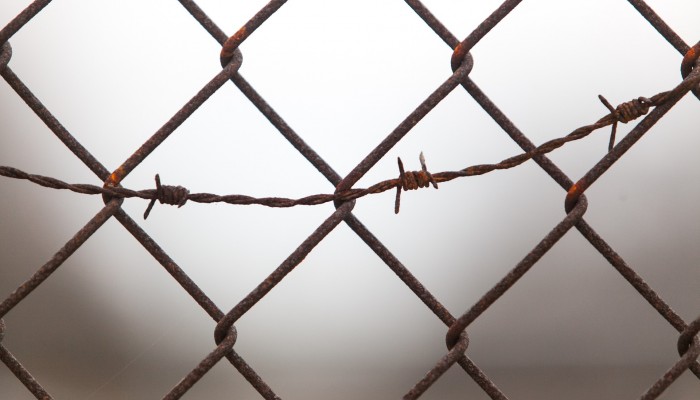Asylum Seeker mistreatment – the criminal law perspectice
The Australian Human Rights Commission’s November 2014 Forgotten Children report, about Australia’s mistreatment of asylum seeker children in detention, exposed the international human rights law and “duty of care” breaches involved. The report’s focus was only on breaches of civil law – that people can be sued for.
But the mistreatment of asylum seeker children (and adults) also involves the apparent commission of criminal law offences – that people can be prosecuted for – under an Australian law, the Work Health and Safety Act 2011 (Cth) (“the WHS Act” or “the Act”).
So, how does the WHS Act apply? Has it been complied with? And has it been enforced?
The Act applies to every Commonwealth workplace and therefore – because every detention centre is a Commonwealth workplace – it applies to every detention centre. Section 19 imposes a duty on a Commonwealth workplace operator to “ensure, so far as is reasonably practicable,” that not only “workers” (section 19(1)) but also “other persons” (section 19(2)) are not exposed to workplace risks to their health and safety. At detention centres, those “other persons” are asylum seekers and their children. Section 4 defines “health” to include “psychological health”.
Comcare is the regulator that is responsible for enforcing compliance with Act. Non-compliance is a criminal offence, prosecutable by Comcare, with fines of up to $3 million and jail for up to 5 years (sections 31–33).
The Act has not been fully complied with, as the following official reports indicate:
- The Forgotten Children report found that: by March 2014, the children’s average time in detention was 231 days (p.18); and the longer the detention, the greater the harm to children’s psychological health (pp.186–7) (Note: by 29 February 2016, the average detention period had reached 464 days, and 25.9% of detainees had been held for more than 730 days).
- The Immigration Department’s 2013–14 Annual Report states at p.280 that 449 incidents of danger, serious illness/injury or (in 8 cases) death occurred at the Department’s workplaces – all of them notified to Comcare. Further, 374 of them (83 per cent) occurred at detention centres, but “did not directly involve workers”. In other words, they nearly all did directly involve “other persons”.
- The March 2015 Moss Report confirmed some Nauru sexual abuse allegations and found more.
- There were 49 reported sexual assaults involving detention centre children during the two years ending 31 January 2015 – that’s almost one per fortnight (Department of Immigration and Border Protection evidence, Senate Estimates Committee hearing, 23 February 2015: The Age, 24/2/2015) – and 15 at the Nauru centre during the 18 months ending 30 June 2015 (Department evidence 20 July 2015 to the Senate Select Committee on Nauru allegations).
However, Comcare was finding no detention centre breaches of the Act and laying no charges:
- The Department’s 2012–13 Annual Report says (at p.319) that Comcare inspected seven detention centres but found no Act breaches. Comcare’s 2012–13 Annual Report (at p.182) records no WHS Act prosecutions commenced, while its 2013–14 Annual Report (at pp.180–1) records no detention centre-related prosecutions under the WHS Act.
- In a media release (dated 1 July 2015) aimed at refuting some assertions that were critical of Comcare in a media release by the Australian Lawyers Alliance, Comcare’s CEO stated as follows:
Comcare inspectors … visited regional processing centres on Manus, Nauru and Christmas Islands on multiple occasions in 2014 and will conduct further inspections later this year. Inspections of [the Department’s] workplaces have not found any breaches of the WHS Act.
But Comcare’s ‘no breaches’ claims did not square with the official report findings, which suggested that the operator of the detention centres had repeatedly failed to ensure that the health and safety of asylum seekers and their children was not put at risk. In other words, the operator had apparently been committing ‘breach of Act duty’ offences.
So, who is the criminally liable operator? Contractors engaged by the Commonwealth provide most services at detention centres, and two of those centres are notionally under the control of foreign governments – but note the following sections of the Act.
10 Act binds the Commonwealth
(1) This Act binds the Commonwealth.
(2) The Commonwealth is liable for an offence against this Act.
12F Interaction with Commonwealth criminal law
(3) Section 15.1 of the Criminal Code (extended geographical jurisdiction—category A) applies to an offence against this Act [including a breach of duty offence].
14 Duties not transferrable
A duty cannot be transferred to another person.
272 No contracting out
A term of any agreement or contract that purports to exclude, limit or modify the operation of this Act or any duty owed under this Act … is void.
Sections 14 and 272 prohibit the Commonwealth from transferring its Act duties to Papua New Guinea or Nauru and from contracting out of them via any agreements with the likes of Broadspectrum, formerly Transfield Services (although contractors do have parallel obligations under the Act’s duty provisions). On analysis, section 12F(3) makes the Act apply, at offshore detention centres, to the Commonwealth, to its Australian-incorporated contractor companies and to Australian citizen workers. But it is the Commonwealth, as the over-all operator of all detention centres, onshore and offshore, that is predominantly liable.
The above summary and analysis of Act provisions was accepted by the Department in the answers it provided to the Senate Select Committee, on 30 June 2015, in response to Senator Kim Carr’s questions on notice (document no.22, pp.4–6) – a fact that Comcare is presumably aware of.
So will the Commonwealth/the Department and perhaps also Broadspectrum/Transfield face Comcare charges alleging past breaches of their WHS Act duties to ensure the health and safety of asylum seekers and their children? We shall see.
